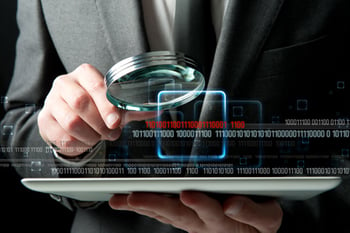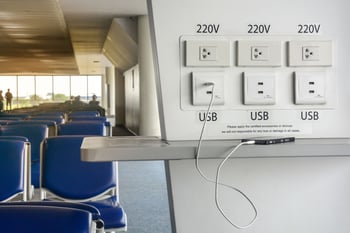For many knowledge workers, one of the benefits of the pandemic and the change to more of a remote "Work From Home" approach has been how much more control they have over their own schedules. Want to do a quick load of laundry or have to hop off line to go pick up your kids from school? With remote work, there's nothing stopping you.
But a new study from a pair of researchers suggests that you may want to rethink things before using that newfound freedom to shoot off emails to your colleagues at all hours of the night. On the one hand, you're using the late night quiet to clear out your inbox and get back to people. But the sad news is - recipients are all too often misjudging how urgently you expect a reply, leading to a ton of unnecessary stress.
Your late night CATCHUPS are more stress-inducing than you think
Writing in The Wall Street Journal, Laura Giurge of the London Business School and Vanessa Bohns of Cornell lay out the findings from a paper they recently published in Organizational Behavior and Human Decision Processes. For the series of studies, they polled more than 4,000 workers about their understanding of the urgency of out-of-hours emails and uncovered a massive gap between what senders intend and how their recipients respond (to the request).
"We consistently found that receivers overestimated the need for a fast response - something we call 'email urgency bias,'" they say, summing up the results. That seems handy to know, but not exactly earth-shattering. At least until you learn just how much recipients are stressed out by this disconnect.
"We found that, on average, receivers assumed they needed to respond 36 percent faster to off-hours work emails than senders expected. What's more, the receivers reported feeling more stressed by off-hours work emails than senders expected them to feel, and the stress associated with this unnecessary pressure resulted in lower subjective well-being," the researchers report. To put that more succinctly, this mismatch in expectations is really stressing people out.
WHAT CAN YOU DO TO FIX THIS?
The article goes on to dig into what quirks of the human brain are likely responsible for the problem. It's well worth a read if you're interested in a deeper dive into the science, but likely more important for time-pressed is the practical takeaway of the research. Helpfully, it's both simple and easy.
"One thing that can help to eliminate such miscommunication is making one's assumptions explicit," the researchers write. Simply adding the phrase "This is not an urgent matter so you can get to it whenever you can" to emails completely eliminated the problem, they found.
Which begs the question, what else can you do to help alleviate this stress?
That said, here are a few alternatives you could also use to better set expectations:
- "Even though I'm sending this email outside of regular work hours, which fits my own work-life schedule best, I don't expect a response outside of your own work hours."
- "Note that you might receive this message outside of my office hours, but that I have no expectation to receive a message outside of your office hours."
- "Please know that I respect boundaries around personal time. If you receive an email from me during your personal time, please protect your time and wait to respond until you are working. It's important that we all prioritize joy over email whenever possible."
Although these samples may be a little long-winded, I still think you get the point.
From my experience, this actually brings to light one of the key components of a well crafted email that seems to be lacking all too often (and one of my personal pet peeves). That is to say, in all too many emails there's no reference at all to an ETA or the priority of the request. Some phrases you can use include:
- "Please get back to me by the end of the day (or week or whenever)."
- "I need this info by my 2:00pm meeting. Please let me know well before then."
- "Please let me know if you can't get this info to me by EOD."
Naturally, any one of these would be better than nothing at all which leaves the recipient with the impression that this (request) is urgent and you need an answer NOW.
And on the odd chance that an off-hours email is actually urgent, you should communicate this in no uncertain terms too, perhaps with all-caps "URGENT" in the subject or a note to this effect in red in the email itself.
The point I'm trying to make here isn't to discourage workers from sending emails at off hours. The ability to fit your work around your life is one of the biggest perks of this new paradigm. Just be mindful of the likelihood of misunderstanding and make sure that while you're choosing to get your work done a different times of the day, you in no way intend to suggest others should follow suit.
Does your organization work under these email "rules of engagement"? Share your thoughts with me about this topic in the Comments section below or send me an email to discuss things more in-depth.
/fpa-logo-tagline.gif)







